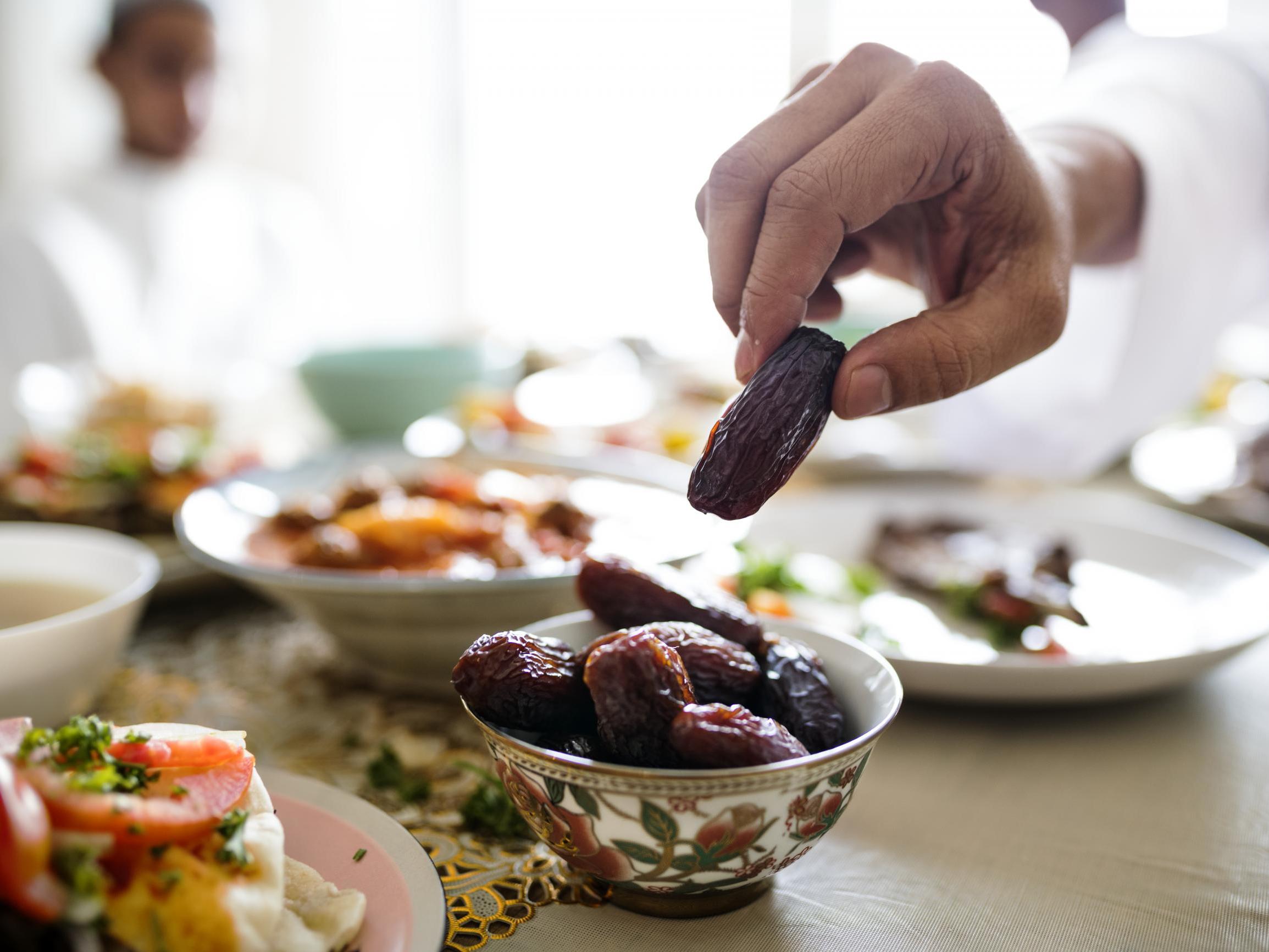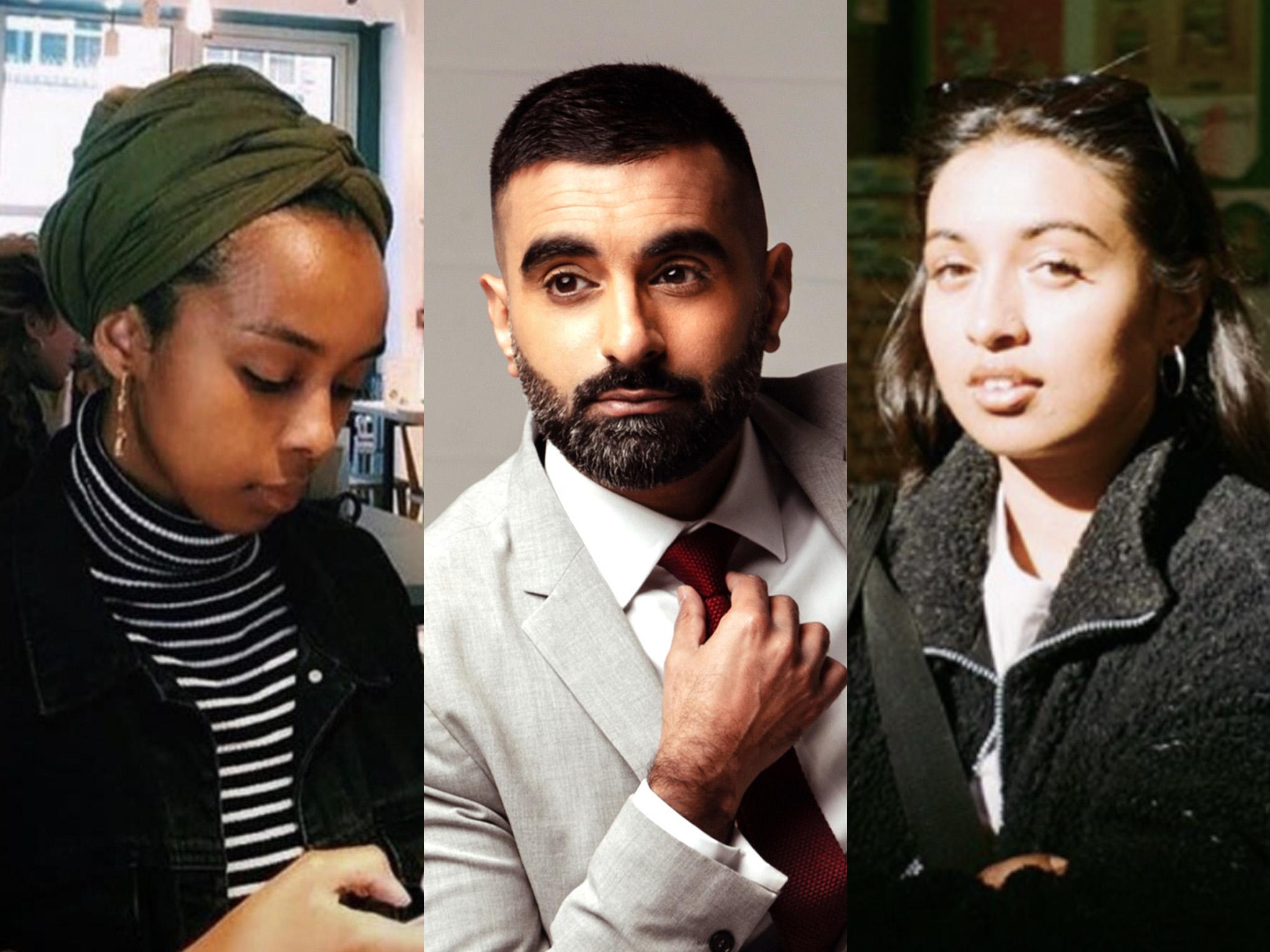The Independent's journalism is supported by our readers. When you purchase through links on our site, we may earn commission.
From virtual Iftar to socially-distanced prayer: What Ramadan will look like for British Muslims in lockdown
For Muslims around the world Ramadan is about community, family and faith, but with a country in lockdown, how will it look? Tahmina Begum speaks to those about to embark on 30 days of unknown

Your support helps us to tell the story
From reproductive rights to climate change to Big Tech, The Independent is on the ground when the story is developing. Whether it's investigating the financials of Elon Musk's pro-Trump PAC or producing our latest documentary, 'The A Word', which shines a light on the American women fighting for reproductive rights, we know how important it is to parse out the facts from the messaging.
At such a critical moment in US history, we need reporters on the ground. Your donation allows us to keep sending journalists to speak to both sides of the story.
The Independent is trusted by Americans across the entire political spectrum. And unlike many other quality news outlets, we choose not to lock Americans out of our reporting and analysis with paywalls. We believe quality journalism should be available to everyone, paid for by those who can afford it.
Your support makes all the difference.Miski Osman is a junior doctor from London. Because of the coronavirus lockdown this will be the first Ramadan she has ever spent alone. Normally the 27-year-old would spend it surrounded by extended family and friends but as she cannot take the risk of bringing Covid-19 home from work, she has been assigned temporary NHS accommodation miles away from her loved ones.
“I’m living with another doctor who is also Muslim but they will be doing the opposite shift to me so I am trying to sort out how I can do iftar (the meal eaten to break fast at sunset) with my friends and family,” she says. “I’m sure I’ll partake in virtual iftars, as some of my friends are in the same situation too.”
Like many Muslims, Osman’s Ramadan usually consists of lots of family time: preparing dinner for relatives, enjoying each other’s company and spending time together. She also normally volunteers at the Ramadan Tent Project, a charity which hosts large community meals across the capital. But this year will be a much lonelier affair, in which Osman hopes instead to read the Quran in its entirety (a goal many Muslims set during Ramadan).
“I don’t remember the last time I had time to myself during Ramadan, I’m normally busy with family. This is a chance to reflect more, to worship more. I know it will have a huge benefit to what we’re all trying to deal with [coronavirus].”
The holy month of Ramadan is celebrated by the almost two billion Muslims around the world and the 3.4 million Muslims in the UK (latest ONS data available). The festival lasts a period of 30 days and Muslims believe it is a time to replenish spiritual and religious health, as well as volunteer in your local community and appreciate the things we all take for granted; this is most visibly done by fasting, not consuming any water or food, from sunrise to sunset.
The date of Ramadan changes every calendar year because it is dictated by the lunar cycle – it is expected in 2020 most families in Britain will start fasting on Friday 24 April with Eid (the end of the fast) expected on 23 May. For obvious reasons during this period the ritual of eating is seen as a more special event – suhoor (the last meal before daybreak) and iftar being times of family gathering. But with Muslims across the UK practicing social distancing and self-isolation this year will undoubtedly be quite different.
There will be no nightly Taraweeh (prayers) at the local mosque, no sharing iftar food with your neighbours, no tangible communal acts to feel united. In other words, the many things that are synonymous with Ramadan for many Muslims, have been taken away. Prominent Muslim figures including Mayor of London Sadiq Khan, actor Riz Ahmed and former-TV presenter Konnie Huq even released a video encouraging people to spend Ramadan at home.
Lamisa Khan, 24, the co-founder of Muslim Sisterhood, says not having the community interaction will be the part of Ramadan in lockdown that is most difficult for her. Khan, who lives in south west London, says that as she has got older she has cherished the sense of community and having more friends fasting together, particularly as a woman.
“For many of us growing up, especially for women, we didn’t have that space to pray together but in recent years, there is a community spirit where neighbours drink mint tea together,” she says. Khan’s local mosque hires out a school canteen so that people can come for tea before the Taraweeh prayer in the evening.
“It is so nice to see so many people come through every night. It’s so beautiful to see how nicely organised our community has become. When you grow up in places where there aren’t many Muslims around you, times like Ramadan can feel isolating.”

As a result, losing this community in 2020 - because of the ongoing lockdown, social distancing, banning of mass gatherings and the closure of all places of worship - will be a real struggle for Khan. “I’ll miss that...I know when you’re fasting and praying with people, it can make things easier.”
The Muslim Council of Britain, the largest umbrella organisation for Muslims in Britain, has issued advice on those missing the community interaction; it says families should organise virutal iftars and use video chats or turn into livestreamed prayers from their local mosque. It says: "The suspension of services in mosques and social distancing measures will make Ramadan 2020 feel very different for Muslims."
Many of us who will be fasting while working for the NHS will take it day by day..."
Another issue for key workers like Osman will be combining the strain of working on the frontline of the pandemic, doing longer hours and facing ever-greater challenges to fight Covid-19, with not eating and drinking – something that is normally hard but believers say brings spiritual fulfillment and focus to compensate.
“Many of us who will be fasting while working for the NHS will take it day by day,” she says. “You’re meant to hydrate yourself when wearing PPE as it can get hot and stuffy.”
Despite these challenges Osman is hoping that there will be rewards and upsides to fasting during the stress of a pandemic. “Ramadan may make this all simpler and easier to manage. The beauty of [it] is that it brings ease. Fasting gives you the ability to focus.”
For others there are tangible benefits to the lockdown, which the government has said will be in place till at least 7 May, and likely much longer. For comedian Tez Ilyas, 38, based in Blackburn, he would not normally be at home for Ramadan because he would be doing gigs in London or touring his shows. Now he has been at home for six weeks.
“Work doesn’t usually stop during Ramadan. So I’d be in London or doing other gigs while fasting, meaning I’d be breaking my fasts at a gig,” says Ilyas. “I’m happy I’m at home with my mum, if I was still living in London and self-isolating alone during Ramadan, it would be horrible. It will be quite nice to get at least one nutritious meal a day this time.”
Khan will also be at home with her family throughout Ramadan – although she is a little concerned that her multi-generational household (made up of her parents, her maternal grandmother, her brothers, her aunt and her cousin) will be a frequent “test of patience” for the month-long endeavour. “I live with so many people so in a sense I am blessed that I will still get that sense of togetherness and family,” she says.
Of course lots of the implications of social distancing on Ramadan will be logistical – but what about spiritually? This pillar of the Islamic faith is as much a spiritual undertaking as it is a physical one, so will Muslims expect it to feel different – one school of thought that has emerged online suggests that Ramadan has “come at the right time” to focus faith and belief.
“I don’t know about that,” says Ilyas. “But it will be a chance to create discipline with daily prayers, something that isn’t usually there all year round.” Like Osman he also plans to read the whole of the Quran during the fasting season. “It will be a Ramadan of looking inwardly, a time for self-reflection”.
What an opportunity to be reflective. What an opportunity to be grateful for our loved ones and the time we have with them..."
For those who are worried about missing the opportunity to volunteer and do work in their community: some organisations are still going ahead with annual appeals, including Islamic Relief’s annual Ramadan fundraising appeal.
Ilyas also says that as well as having more time for reflecting, being able to shift his sleeping pattern around without work means he can pray at times that are more appropriate for disrupted mealtimes. Although he does worry that without external distraction boredom might creep in and be a factor in the difficulty of Ramadan this year.
For Khan she says that she is choosing to see the ongoing situation as a “sign from Allah to take a breath”. “What an opportunity to be reflective. What an opportunity to be grateful for our loved ones and the time we have with them,” she says.
Although her optimism wanes when she thinks about the prospect of missing Eid parties in a month’s time: “There’s a rush the night before Eid, when you’re getting your mendhi down in the streets and people are celebrating together and buying last minute Eid clothes, an experience that we’ll be sad to miss.”
No one knows whether the lockdown will be in place for the whole of Ramadan, whether celebrations will have to be postponed until the period has long passed or communities will be able to come together again in a matter of weeks. For Muslims looking ahead it presents the usual challenge of a testing fast but with the reassuring comfort of faith in troubled times.
Join our commenting forum
Join thought-provoking conversations, follow other Independent readers and see their replies
Comments